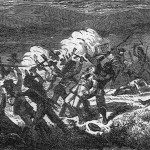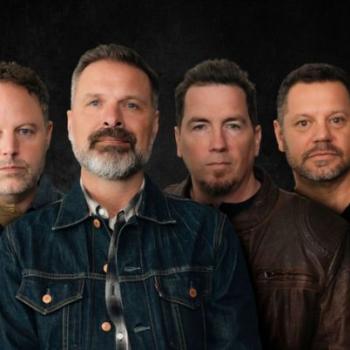This, though, is sin. It is neither the nature of who we are as redeemed members of the family of God nor is it who God dreams for us to be.
It is essential that we articulate clearly that we are a part of the mission of God — the missio dei. God's mission is reconciliation and we are God's church at work in the world. This ministry of reconciliation takes place rooted in a ministry that first embraces reconciliation itself. Reconciliation is the work of healing history, of living into difference and celebrating the gift of diversity that difference brings, so that we might create (with God) a culture of peace. We do this work by spreading the Good News of God's reconciling work with the world and by serving in the midst of our communities as neighbors.
Greg Garrett: As you might imagine, I'm pretty fond of the way your book Church uses
our culture (Monty Python, Louis C.K., Tolkien, and others) to help illuminate its points. How do you understand the relationship between religion and culture? What are some things you think the culture does a better job teaching us than our tradition? And how has being an artist shaped the way you understand faith — and perhaps would like others to understand it?
Andy Doyle: As an art major, I was trained in the then-emerging postmodern art world. I was heavily influenced by the work of Vernon Fisher who was teaching at North Texas at the time. I think this gave me more than an applied deconstructionist view of art and culture that could then be pieced together. It gave me an understanding of the many voices that speak to us through art, culture, music, film or business, organizational theory, economics, politics. All are places that God is revealing God's self in the world. Culture itself is an outflowing of human community and human community is an outflowing of God's creation. I think as Robert Bellah and others have stated, the modern Christian Church removed itself from the culture and said, We will be about divine things, you about secular things.
When we did this we cut ourselves off from a huge opportunity for conversation, to be voices of morality in the culture, and we shut ourselves off from a massive portion of God's creation. In this way, the Christian Church has become a toxic and unhealthy diaspora. I believe (following the wisdom of Emil Brunner) we need to open ourselves up to remember that the Church and God's ecclesia are two different things. Our work as leaders, authors, artists within the church is to break the organization open to the wisdom of God found everywhere and to help us constantly move toward God's ecclesia.
Part II of Greg Garrett's interview with Bishop Doyle coming Tuesday, June 23, 2015.





